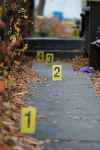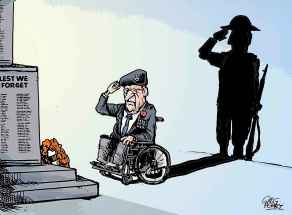Police reassign 74 officers to deal with spike in violence
Read this article for free:
or
Already have an account? Log in here »
To continue reading, please subscribe:
Monthly Digital Subscription
$0 for the first 4 weeks*
- Enjoy unlimited reading on winnipegfreepress.com
- Read the E-Edition, our digital replica newspaper
- Access News Break, our award-winning app
- Play interactive puzzles
*No charge for 4 weeks then price increases to the regular rate of $19.00 plus GST every four weeks. Offer available to new and qualified returning subscribers only. Cancel any time.
Monthly Digital Subscription
$4.75/week*
- Enjoy unlimited reading on winnipegfreepress.com
- Read the E-Edition, our digital replica newspaper
- Access News Break, our award-winning app
- Play interactive puzzles
*Billed as $19 plus GST every four weeks. Cancel any time.
To continue reading, please subscribe:
Add Free Press access to your Brandon Sun subscription for only an additional
$1 for the first 4 weeks*
*Your next subscription payment will increase by $1.00 and you will be charged $16.99 plus GST for four weeks. After four weeks, your payment will increase to $23.99 plus GST every four weeks.
Read unlimited articles for free today:
or
Already have an account? Log in here »
Hey there, time traveller!
This article was published 08/11/2019 (2227 days ago), so information in it may no longer be current.
Police Chief Danny Smyth delivered a dire message to Winnipeggers Friday: an unprecedented wave of violence has put his force under siege as it scrambles to clear a backlog of homicide cases that continues to rise.
“Our community is reeling and our organization is reeling here. A lot of people just can’t make sense of what’s going on right now in the community. The level of violence, the level of property crime, it’s alarming for all of us,” Smyth said.
On Friday, Smyth announced a drastic measure: 74 police officers will be temporarily reassigned. Officers will be pulled back from several behind-the-scenes units, as well as an inter-agency task force with RCMP called Project Devote.
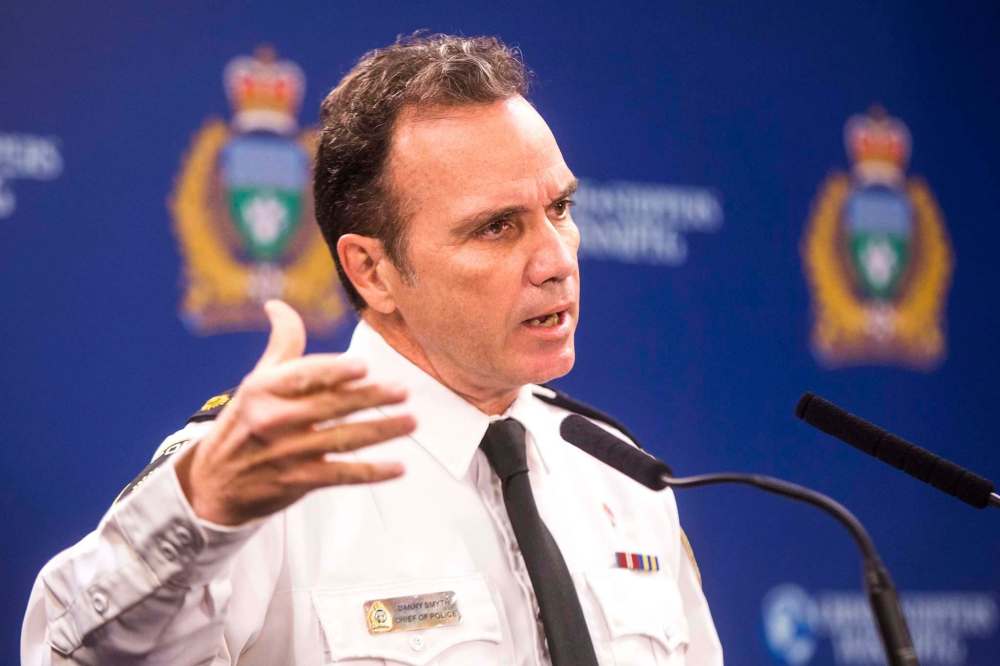
The changes will allow the police service to expand the homicide unit, which has had 40 cases so far this year; increase foot patrols downtown; and boost the number of frontline officers who respond to calls.
In order to do that, the service will temporarily close its station duty offices, centralizing those resources to the police headquarters at 245 Smith St.
“We can’t keep scrambling the way we have been. We have never had this amount of homicides in such a short period of time, so it’s kind of strained the physical abilities of the people there… Every category of violent crime has gone up this year, with the exception of arson,” Smyth said.
“Violent crime and property crime are well above the five-year averages… and our five-year averages are well above the Canadian averages.”
Last month, there were eight homicides. It marked the most slayings in a month in at least two decades, if not ever.
The Free Press asked the police service how many officers have been reassigned to the homicide unit, but the force wouldn’t give that number. It wouldn’t reveal how much overtime homicide detectives have worked because of the high crime rate.
Police said traffic enforcement will be scaled back, meaning there will be fewer officers working holiday checkstops. Smyth reiterated these measures are temporary.
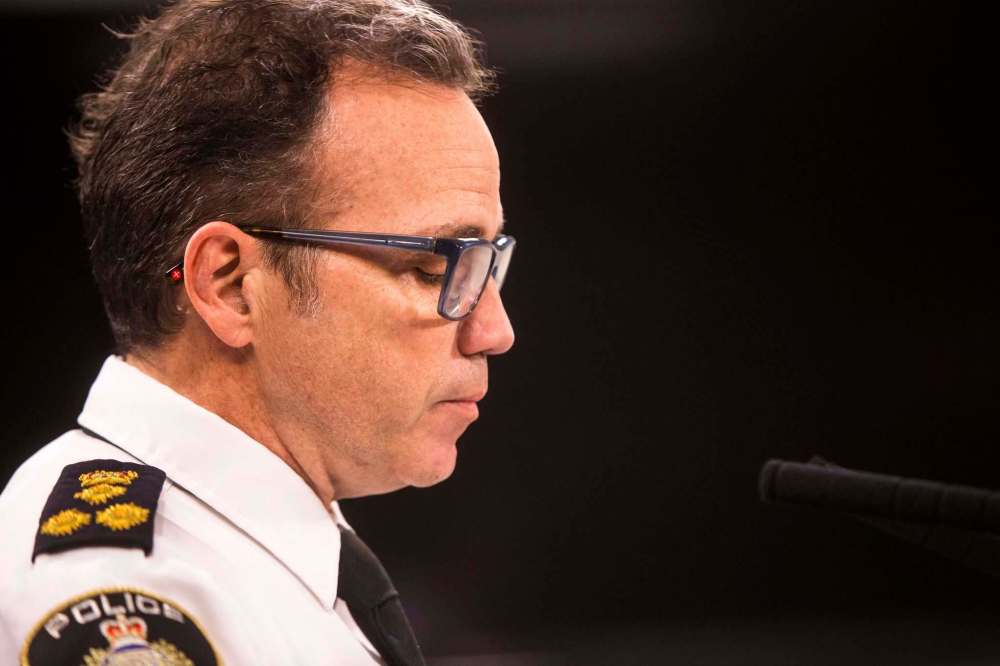
City Coun. Kevin Klein, who chairs the Winnipeg Police Board, said he welcomes the moves.
“We’re hearing that people are concerned. We’re facing a lot of challenges right now and we certainly want answers,” Klein said.
“Today we’ve seen the service do what they had to do. This is necessary right now.”
Smyth said more officers have requested sick leave recently, although it’s unclear if it’s is connected to the spike in violence.
“I can tell you right now from just walking around people are pretty stressed… I’m not great. Usually when I answer that question, I say I have more good days than bad days. But I’ve had a succession of bad days here. That doesn’t happen often, so it’s weighing on me,” Smyth said.
Retired Winnipeg officer James Jewell, who spent more than 26 years in law enforcement, including the homicide unit, understands the stress officers are under.
Jewell, who investigated more than 200 homicides, said it can be difficult for civilians to comprehend the effect investigating extreme acts of violence has on officers.

“Dealing with horrific acts of violence like we’ve seen can have an extremely negative psychological impact for some investigators,” Jewell said.
“…The officers themselves may be somewhat oblivious to them. Looking back, I have to say working the homicide unit is similar to being in a bad relationship: you really don’t realize how much it’s impacting you until you get out of it,” he said.
The recent spate of violence reached a fever pitch on Oct. 30 when three-year-old Hunter Straight-Smith was allegedly repeatedly stabbed by his mother’s on-again, off-again boyfriend. Hunter died after being taken off life-support on Nov. 2.
Jewell said when he heard about the attack, he recalled a 1998 case in which three-year-old Randy Grisdale died of exposure after being left outside in winter, dressed only in a diaper and shirt, by his mother’s boyfriend.
“I realized that even after 7,655 days, the emotional trauma I experienced working Randy’s case is still very much with me. It’s important we recognize police officers are just ordinary people who are exposed to extraordinary events,” Jewell said.
“It’s vital that we ensure we have the tools to help officers cope with work-related emotional trauma.”
Jewell said the increase in violence in Winnipeg cannot be blamed on a single factor, but is the result of a complex mix of longtime social issues.
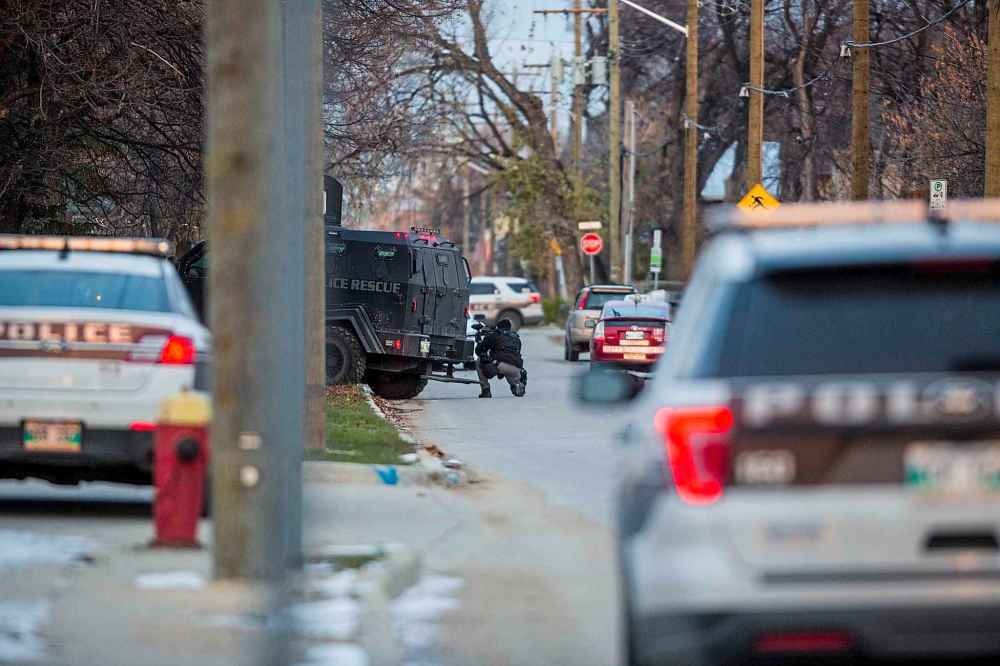
“Gang crime, independent drug cells, organized crime, firearm escalation, domestic violence, robbery, alcohol abuse, poverty, homelessness and general violence” have contributed to this year’s high homicide total, he said.
One Winnipegger who feels like he’s on the frontline of the methamphetamine crisis, and its accompanying violence, is Ken Wainwright. He said he has lived across the lane from a shooting gallery for the past decade: a boarded-up apartment complex at 471 William Ave.
The ground is littered with shattered glass, drug baggies, garbage and syringes. A plastic glove, likely dropped by a paramedic during a call to the property, is on the steps.
On Oct. 27, two men were shot to death in the area. The cases remain unsolved. In the days after the bodies were found, Wainwright said investigators knocked on his door to ask if he’d seen or heard anything. He hadn’t.
In the inner-city neighbourhood, block after block, gang graffiti is visible, scrawled on businesses, apartment complexes and fences.
Standing in the lane, Wainwright pointed to the shooting gallery metres from his garage and said he’d like the building to be demolished.
“We’ve got squatters pulling the plywood off the windows and going in there. It’s a terrible shooting gallery. The place should be torn down,” Wainwright said.
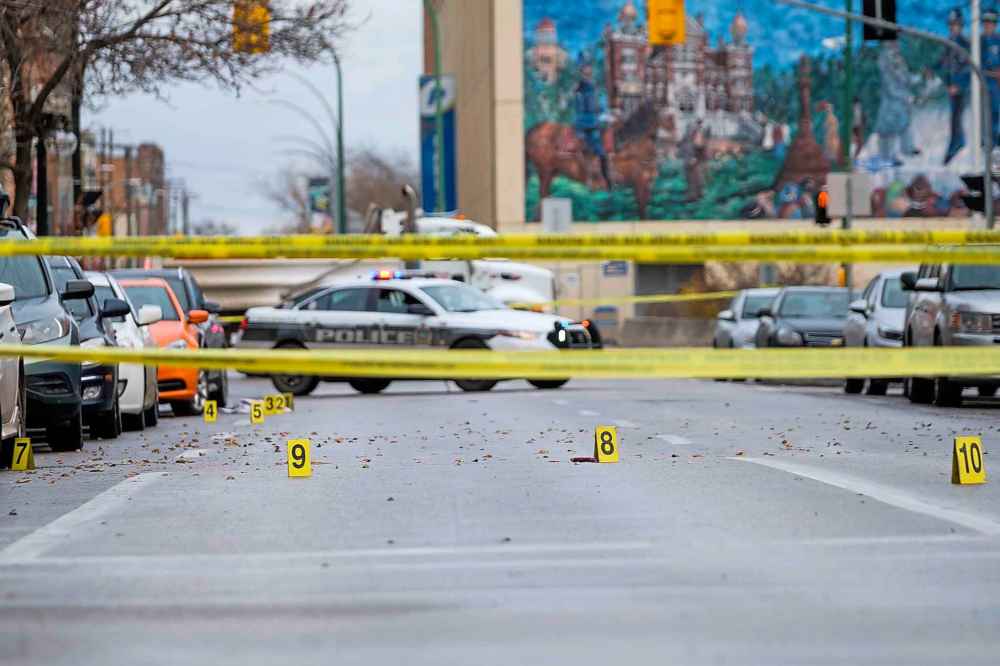
Heavyset, with a short beard, and glasses perched on the tip of his nose, Wainwright said he’s lived in the neighbourhood for 20 years. When asked if he feels like he’s losing the place he’s called home for the past two decades, he just scoffed and shook his head.
“I think it’s already lost.”
ryan.thorpe@freepress.mb.ca
Twitter: @rk_thorpe

Ryan Thorpe likes the pace of daily news, the feeling of a broadsheet in his hands and the stress of never-ending deadlines hanging over his head.
Our newsroom depends on a growing audience of readers to power our journalism. If you are not a paid reader, please consider becoming a subscriber.
Our newsroom depends on its audience of readers to power our journalism. Thank you for your support.





